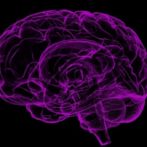Snapshots of Dementia: Sunrise, Sunset, Sundowning
Photo by David Mullins on Unsplash As I’ve said before, Tom and I are the typical opposites who attract. We realized early on in our marriage that even our sleep patterns differed. I could remain alert late at night but took a while to feel like talking in the morning. He needed an earlier bedtime but arose, fully recharged, no matter how early the alarm clock rang. All that changed, however, with the arrival of our first child—and then our second ten months later. I’ve often said that mothers have to be both night owls and early birds. Once again, my parenting experience has served me well, as I now need alertness at many times of the day. That’s especially true because over the past several months, sundowning has played a more significant role in our lives. In case you haven’t heard of sundowning or sundown syndrome, it refers to a set of symptoms that typically occur as daylight begins to fade, generally in older adults with one or more forms of dementia. It can involve restlessness, agitation, irritability, confusion, and more—and it often makes going to bed and staying asleep a challenge. Tom has taken medication to help him sleep since we first began treating his dementia symptoms, so I suppose he’s shown sundowning behaviors for a while. Without the medication, he tends to wake up much more or becomes agitated, even violent, in his sleep. With the medication, he sleeps well—for the most part. As a person living with dementia, he also requires more sleep than he used to. The activities of daily living are much more difficult for him than in the past. His broken brain has to work harder to process simple conversations and ideas. If we have an outing or appointment during the day, he almost always comes home exhausted. He still loves interacting with people, but the mental challenge wears him out. That exhaustion was one of those dementia symptoms I noticed long before the doctors agreed with me that anything was wrong. The simplest tasks seemed to tire him, and he took naps whenever he had the opportunity—something he’d never done before. I wondered if he was aging prematurely, and in a way, I guess he was. If you look at photos of him now compared to even a few years ago, you can see the toll his disease has taken on his face. Of course, that’s nothing like the toll it has taken on his life. Tom’s sundowning means I can’t ask him questions late in the day and expect a coherent (or any) response. His tremors worsen, so he’s more likely to spill his food and drinks. For the past month...
Read More








